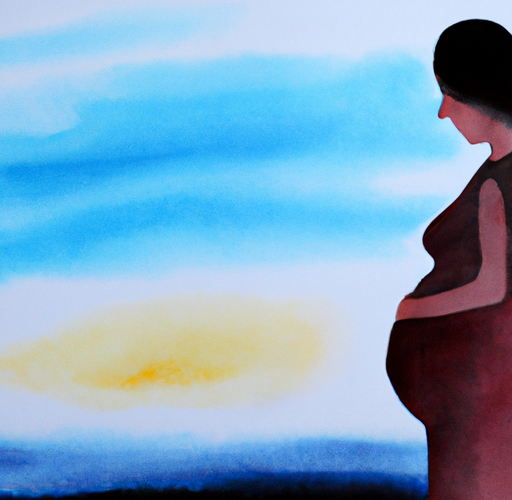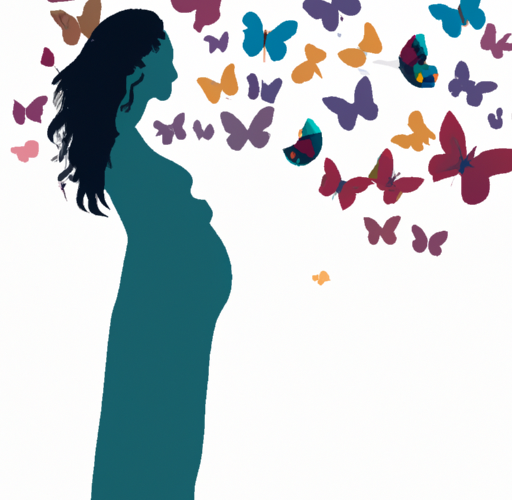Pregnancy is a transformative and deeply personal experience that affects women in profound ways, both physically and psychologically. While the physical changes are more easily visible and widely discussed, the psychological aspects of pregnancy are often overlooked or misunderstood. This article aims to shed light on the psychological impact of pregnancy, exploring the symptoms, causes, and diagnosis of various psychological challenges that expectant mothers may face. Additionally, we will delve into effective treatment approaches for addressing these challenges and unravel the complex psychological factors that influence pregnancy. By understanding and addressing the psychological aspects of pregnancy, we can better support and empower women throughout their journey to motherhood.
1. "Understanding the Psychological Impact of Pregnancy: Symptoms, Causes, and Diagnosis"
Pregnancy is a unique and transformative experience that affects not only a woman’s physical health but also her mental and emotional well-being. Understanding the psychological impact of pregnancy is crucial for healthcare professionals, as it allows for appropriate diagnosis, treatment, and support during this significant period of a woman’s life.
Symptoms of psychological distress during pregnancy can vary widely and may include mood swings, anxiety, depression, irritability, and changes in appetite or sleep patterns. These symptoms can often be attributed to the hormonal fluctuations that occur during pregnancy, as well as the physical discomfort and lifestyle adjustments that come with it. However, it is important to differentiate between normal emotional changes and more severe psychological disorders that may require intervention.
Causes of psychological distress during pregnancy can be multifaceted. Hormonal changes, particularly fluctuations in estrogen and progesterone levels, can influence neurotransmitters in the brain, potentially leading to mood swings and emotional instability. Additionally, the physical changes and discomfort associated with pregnancy, such as weight gain, body image issues, and changes in sexual desire, can contribute to psychological distress. Personal factors such as a history of mental health issues, a lack of social support, or stressful life events can also increase the risk of developing psychological symptoms during pregnancy.
Diagnosing psychological distress during pregnancy can be challenging due to the overlapping symptoms with typical pregnancy experiences. Healthcare professionals must rely on a comprehensive assessment, considering the duration, severity, and impact of the symptoms on a woman’s daily functioning and quality of life. Screening tools and standardized questionnaires can aid in the diagnosis process, helping to identify women who may benefit from further evaluation or intervention.
Treatment options for psychological distress
2. "Navigating the Emotional Rollercoaster: Effective Treatment Approaches for Psychological Challenges during Pregnancy"
Pregnancy is a transformative journey that brings about significant physical and hormonal changes in a woman’s body. While these changes are widely discussed and understood, the emotional changes that accompany pregnancy are often overlooked. It is crucial to acknowledge and address the psychological aspects of pregnancy, as they can have a profound impact on a woman’s well-being and the overall health of both mother and child.
During pregnancy, women may experience a wide range of emotions, including joy, excitement, anxiety, fear, and even depression. These emotional fluctuations are normal due to the hormonal changes taking place in the body. However, when these emotions become overwhelming and interfere with daily functioning, it is essential to seek support and effective treatment approaches.
One of the most common psychological challenges during pregnancy is prenatal anxiety and depression. Studies have shown that around 10-20% of pregnant women experience anxiety, while approximately 13% suffer from depression. These conditions can have severe consequences for both the mother and the developing fetus.
It is crucial to diagnose and treat prenatal anxiety and depression promptly. Healthcare professionals play a vital role in identifying symptoms and providing appropriate interventions. Screening tools, such as questionnaires, are often used to assess a woman’s emotional well-being during routine prenatal visits. If symptoms are detected, further evaluation and treatment should be initiated.
Treatment approaches for psychological challenges during pregnancy vary depending on the severity of symptoms and individual needs. Non-pharmacological interventions are often the first line of treatment, aiming to provide emotional support and teach coping strategies. These approaches may include psychotherapy, such as cognitive-behavioral therapy (CBT) or interpersonal therapy (IPT), which can help women explore
3. "Beyond the Physical: Unraveling the Complex Psychological Factors Influencing Pregnancy"
Pregnancy is a profound and transformative experience that encompasses various physical, emotional, and psychological changes. While the physical aspects of pregnancy are well-documented and commonly discussed, the psychological factors influencing this journey are often overlooked or underestimated. Pregnancy can be a time of great joy and anticipation, but it can also bring about a range of complex emotions and challenges for expectant mothers.
One of the key psychological aspects of pregnancy is the diagnosis itself. The moment a woman discovers she is pregnant can evoke a myriad of emotions, ranging from excitement and happiness to anxiety and fear. The timing, circumstances, and desiredness of the pregnancy can all influence a woman’s psychological response to the news. Additionally, factors such as previous experiences with pregnancy, personal beliefs, and cultural influences can also shape a woman’s emotional and psychological reaction to the diagnosis.
The symptoms experienced during pregnancy can also have a significant impact on a woman’s psychological well-being. Physical discomforts such as morning sickness, fatigue, and changes in body image can contribute to feelings of distress or unease. Hormonal fluctuations during pregnancy can also influence mood and emotions, leading to increased vulnerability to stress, anxiety, and depression. It is crucial to recognize and address these psychological symptoms to ensure the overall well-being of expectant mothers.
Understanding the causes of psychological distress during pregnancy is essential in providing appropriate support and treatment. Several factors contribute to the development of psychological symptoms, including hormonal changes, past trauma, personal or family history of mental health issues, lack of social support, and stress related to pregnancy complications or concerns about childbirth. Identifying these underlying causes can help healthcare professionals tailor interventions and provide targeted support to address the




